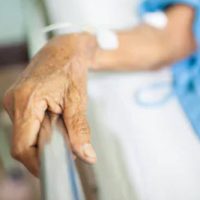5 Types Of Evidence To Help You Prove Nursing Home Abuse Or Neglect

When it comes to nursing home abuse and neglect, proving these claims in court can be a difficult task. It is essential that you have evidence of neglect or abuse in order to build a strong case. Below, we will discuss what types of evidence can help you prove that your loved one was a victim of abuse or neglect in a nursing home.
Our Seattle nursing home abuse lawyers at Emerald Law Group can assist you with building a strong case against a long-term care facility if you suspect your loved one has been a victim of abuse or neglect. We will help you gather all available pieces of evidence to prove the occurrence of abuse or neglect.
Types of Evidence for a Nursing Home Abuse/Neglect Case
Unfortunately, elder abuse and neglect are prevalent in nursing homes across the United States. According to the National Center on Elder Abuse, there are “high levels” of institutional elder abuse in the U.S., with physical abuse accounting for a third of all nursing home abuse cases (33.4%).
Let’s discuss the five types of evidence that may be necessary to prove your case.
- Photographs. Photographs are a very powerful form of evidence for any type of claim, including those involving nursing home neglect or abuse. They can provide visual proof of injury, as well as serve as an indication of the environment where the alleged abuse occurred. Make sure to take pictures immediately after the incident and note any changes that occurred between then and when you took them.
- Surveillance footage. Surveillance footage from CCTV cameras can be extremely helpful if available, especially if it captures the moment of abuse or neglect occurring. If there is surveillance footage, make sure to obtain it as soon as possible so that it does not get erased or become unavailable for some other reason.
- Witness accounts. Having witnesses who can testify on your behalf is invaluable when it comes to proving nursing home abuse and neglect cases in court. These witnesses can include family members, friends, nurses, doctors, and other staff or residents at the facility who witnessed what happened first-hand. It’s important to remember that their testimony must be backed up by other forms of evidence, such as photographs and medical records, before they can be used effectively in court.
- Medical reports. In cases involving nursing home abuse or neglect, medical reports are critical to proving your case in court. They provide detailed information about any injuries sustained by the victim and will serve to back up any witness accounts you present during proceedings. Additionally, medical reports can also provide insight into how long the victim has been dealing with these issues and how severe they are overall—both key pieces of information for making a successful claim against the abuser or negligent facility.
- Personal logs. Personal logs such as journals kept by either yourself or the victim (if possible) can help build your case significantly when filing a lawsuit against a nursing home for negligence or abuse claims in court—especially if they are written contemporaneously with events as they occur over time (rather than after-the-fact). This type of recordkeeping allows you to track changes over time more accurately than just relying on memory alone which may not always be reliable enough for legal proceedings concerning nursing home care matters.
The five types of evidence discussed above—photographs, surveillance footage, witness accounts, medical reports, and personal logs—should all be considered when gathering the documentation necessary to build a strong case against the nursing home or another long-term care facility.
Get the Legal Advocacy You Can Trust
When filing a lawsuit against a nursing home for neglect or abuse claims in court, having strong evidence is key to achieving success with your case and obtaining justice for yourself/your loved one(s). Our knowledgeable and detail-oriented lawyers at Emerald Law Group can help you hold a nursing home accountable for abuse or neglect and advocate for your loved one’s rights and best interests. Call 206-826-5160 to request a free case evaluation.
Source:
ncea.acl.gov/What-We-Do/Research/Statistics-and-Data.aspx#prevalence
